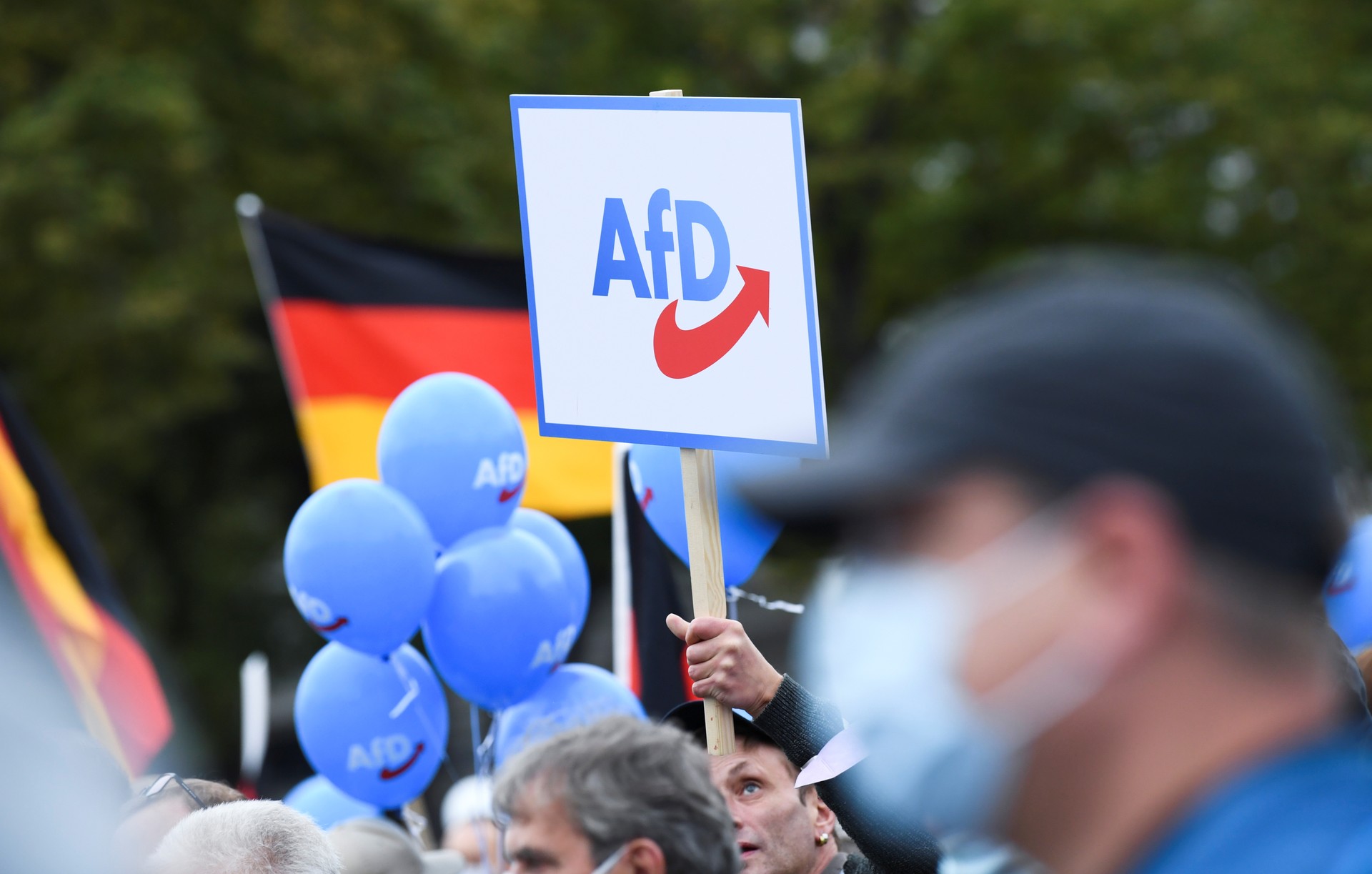
Germany’s far-right party, Alternative for Germany (AfD), has surged to historic levels of public support, challenging the country’s traditional political order and signaling potential shifts in coalition dynamics ahead of the 2029 federal elections.
According to the latest polls—conducted by Forsa between Aug. 5 and 11—AfD secured 26% of voter support, matching its previous record and surpassing the Christian Democratic Union of Germany (CDU/CSU), which fell to 24%.
Founded in 2013 amid the Eurozone crisis, AfD began as a Eurosceptic, economically conservative protest party opposing Germany’s participation in the common currency and criticizing what it called excessive EU influence. Over time, the party expanded its platform to include nationalist, anti-immigration and law-and-order policies. Its co-leaders, Alice Weidel and Tino Chrupalla, have guided AfD toward broader mainstream appeal while retaining core positions that resonate with voters frustrated by traditional parties.
The party’s ascent comes as Chancellor Friedrich Merz, leading the CDU/CSU since 2022, faces declining approval ratings. Her support dropped three points to 29%, reflecting growing public dissatisfaction with government’s handling of economic challenges, migration and Germany’s role in Europe. Analysts warn that these trends may continue to benefit AfD, altering Germany’s political trajectory in the coming years.

In an exclusive interview with Türkiye Today, Suay Nilhan Acikalin, associate professor at Ankara Haci Bayram Veli University, noted that AfD’s consistent rise was fueled by a number of factors. “AfD has risen steadily to become the country’s top party. This trend is particularly influenced by recent shifts in geopolitics, migration and economic challenges,” she said.
Acikalin emphasized that the party is no longer the same as when it was founded. “AfD has adapted some of its policies over time. It has partially removed rhetoric previously labeled as extreme or racist, successfully shifting from far-right to center-right positions. Election results indicate that these policy adjustments have found resonance among the public,” she added.
The Forsa survey shows the Greens rising one point to 13%, matching the Social Democratic Party (SPD), whose support remained unchanged. The Left Party fell to 11%, while the Sahra Wagenknecht Alliance (BSW) and the Free Democratic Party (FDP) received 4% and 3%, respectively, failing to meet the parliamentary threshold. AfD co-leader Weidel shared the results on X, underscoring public frustration. “Merz has become intolerable in just 100 days. It’s time for an AfD government,” she wrote.
Initially focused on criticizing the Eurozone, the AfD quickly shifted toward nationalist and anti-immigration policies, attracting voters dissatisfied with mainstream parties. The party has consistently opposed immigration from non-European countries and promoted stricter border controls. Its rhetoric has drawn criticism from German politicians, some of whom have called for constitutional measures to prevent the party from threatening democratic norms.
In the February 2024 federal elections, AfD captured nearly 21% of the vote, becoming the Bundestag’s second-largest party. Analysts attribute the party’s rise to broader societal concerns, including economic insecurity, migration and shifting geopolitical dynamics in Europe.
AfD has pledged that, if it enters government, Germany would leave the European Union and Eurozone. Party members call this potential departure “Dexit,” drawing comparisons to the United Kingdom’s Brexit. While an immediate exit is unlikely, AfD’s influence could significantly shape future policy debates regarding Germany’s EU membership and economic strategy.

Since reunification in 1990, Germany has been largely governed by the CDU/CSU and SPD, with alternating administrations between center-right and center-left coalitions. AfD’s rise represents a disruption to this established pattern, reflecting public concern over migration, economic policy and Germany’s European engagement. Chancellor Merz faces mounting pressure as the CDU/CSU navigate voter dissatisfaction, while AfD’s evolution toward center-right positions may complicate traditional coalition-building.
Political analysts suggest that AfD’s growing support could influence legislative priorities, public discourse and government stability. Although the party is unlikely to govern alone, its presence is reshaping the political debate and its trajectory will be closely watched in the lead-up to the 2029 federal elections.